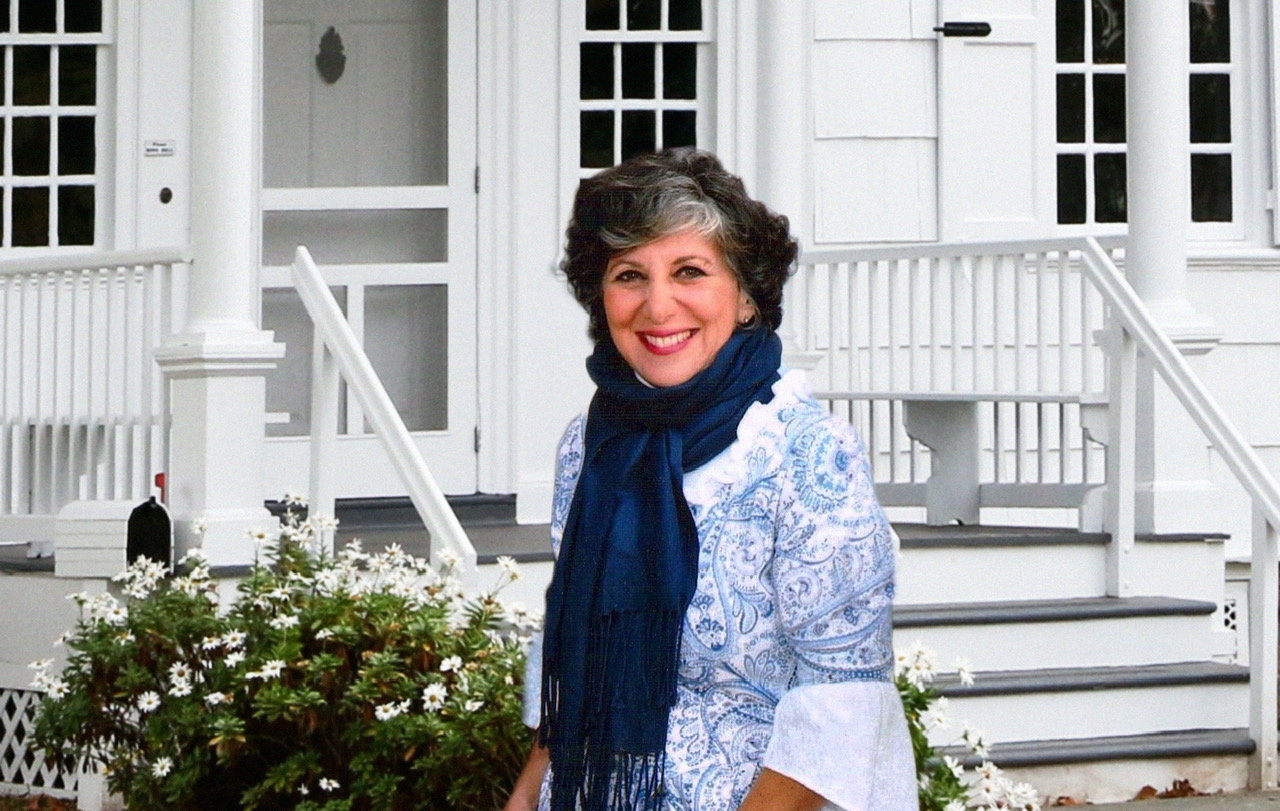Longtime Rock Hall Museum director Linda Barreira retires
After 37 years as director of the Town of Hempstead’s Rock Hall Museum, Lawrence resident Linda Barreira — who brought many new programs to the museum — retired on April 1.
Barreira had a vision for Rock Hall since she started working there in an administrative position in 1985. “I saw a canvas that could be fleshed out with my palette,” she wrote of the museum in an email.
Though her initial duties were to open the facility and to present programs to visitors, because of the potential she saw in the hall — that unfinished canvas — her responsibilities quickly expanded.
“I wanted to make the connection between children and the museum,” Barreira wrote. “My vision was that Rock Hall would be a place where kids would learn about colonial history even if that wasn’t why they initially came.”
She pondered different ways to bring life and color to the museum. She developed workshops, lectures, gardening classes, musical showcases and other programs over the years, and became the museum director in 1995.
During her tenure, Barreira also implemented a furnishing plan, resulting in the reinstallation of rooms, the reproduction of textiles — such as bed hangings and floor cloths — and the creation of permanent exhibits like the warming kitchen, a cold storage area and archaeological displays.
As an administrative assistant in her first year, she created the Rock Hall Country Fair, now a two-day event with entertainment, craft vendors, food and colonial historians. It has offered hayrides and pumpkin patches as well.
“The fair has flourished over the years,” Barreira said, “and is something both I and my entire staff take great pride in.”
Interim Director Amy Vacchio, who grew up in Inwood, started at Rock Hall in 1999, as an intern from Hofstra. She became a full-time employee in 2001.
Having worked alongside Barreira as an assistant for 22 years, Vacchio sees her as more than just a boss, she said. “She has been a friend, mentor and we are a family,” Vacchio wrote in an email, detailing how Barreira taught her about gardening, cooking, animals and more.
“We have spent so many years together, and Rock Hall and Linda have always been synonymous,” Vacchio added. “I will miss her, she is a true friend, colleague and partner and I hope to continue her legacy. “Linda put her heart and soul into this place and made Rock Hall the amazing museum it is today.”
When Barreira was promoted to director, she moved into the hall’s residence wing, and the museum became her home. “It wasn’t just a building, it was a home that needed to breathe, that needed heartbeats outside and in,” she wrote. “It was a garden that needed watering at all times, so that it would look fresh, dynamic, and tended to each day. I found that Rock Hall needed daily love and attention. If I drove away from the museum, it felt like the breath was going out of it, and I had to get back as soon as possible. I cared for it, and I think there was a maternal aspect to my care — very much like a mother who has to walk away from an infant — there (were) never more than a few moments before the museum needed to be tended to.
“My relationship to Rock Hall has grown over the years, just like the relationship a mother has to her children,” she added. “Initially it’s as simple as food and water, and then the needs become more sophisticated.”
While Barreira developed a maternal relationship with the museum, she also became a mother there, giving raising three daughters at Rock Hall.
“As my first child grew up, we incorporated a lot of storytelling in our life at Rock Hall,” she recalled. When the weather was nice, Erica would sit under an oak and listen to her mother tell stories.
This family experience grew into a community experience, as Barreira invited other visitors to listen to stories under the oak, eventually turning it into a regular reading program.
As a resident gardener, Barreira grew snap peas, radishes, string beans, arugula, zucchini, raspberries, tomatoes, cucumbers and more from seed, which her family — and visitors — enjoyed.
Gardening was not only in keeping with the history of the hall, but was also enjoyable and rewarding for Barreira — feeding her children and the community naturally and nutritiously.
“For some parents,” she said, “gardening at Rock Hall was the first opportunity … to expose their children to truly fresh produce — something they may not have eaten out of their own refrigerator.”
Erica, her oldest daughter, recounted growing up in the hall after moving in at just 18 months old. “I grew up in a majestic place,” Erica wrote in an email, “a big white house with a circular driveway on three acres of gardens.”
She recalled showing childhood friends the museum, having sleepovers in the main hall and the small farm of goats, rabbits, alpacas and chickens that her family raised on the property.
“I could not ask for a more fulfilling childhood,” Erica wrote, “and now with my own daughter, Lucia, who is turning 3 in May, I hope to emulate it. She has a strong bond with her Nana, and through her, has developed a deep connection with the animals and everything else Rock Hall embodies.”
“Ultimately, as I remember my time here at Rock Hall,” Barreira wrote, “I am most proud of having cultivated the museum and its grounds into a safe space for the community. I always strove to make Rock Hall a friendly place. A place where children weren’t afraid to come for an afternoon of wholesome, homespun, intimate programs.”

 54.0°,
Fog/Mist
54.0°,
Fog/Mist 






